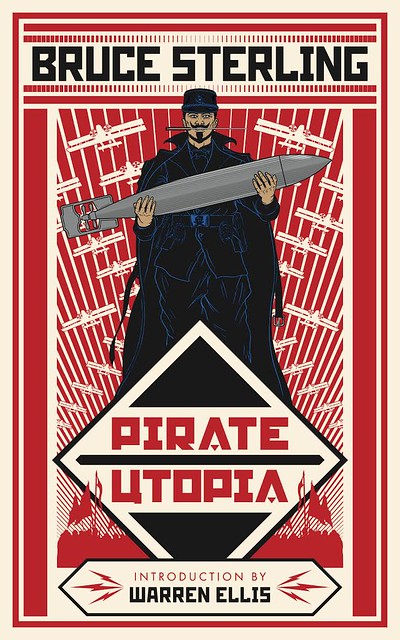In memory of author George Alec Effinger (January 10, 1947 – April 27, 2002), who would have been 66 years old this month, I am reprinting a series of three blog posts I published in the first half of 2009. This third, and final, blog post, originally published on June 8, 2009, focuses on the book
A Thousand Deaths
, which contained George's personal favorite, the novel
The Wolves of Memory -- and my favorite of his work as well.
* * * *
Since my blogs tend to be more essay rather than random comments, like blogging about my great cup of coffee this morning, they take longer to compose. If you enjoy reading what I write, then I thank you for your time and patience, and I ask that you just keep checking back -- and/or subscribe to this blog's RSS feed -- for my next entry.

At least for now, this will be my final blog post on author George Alec Effinger; one blog entry for each of the three collections of his work that I acquired and edited for Golden Gryphon Press between 2001 and 2007.
Part One of this series focused on
Budayeen Nights
and
Part Two pertained to collection
Live! From Planet Earth
. I have a couple ideas for possible future projects of Effinger's work, but only time -- and the economy -- will tell if these ever come to pass.
In late 2002, once I had completed Budayeen Nights, and the book was in the hands of the typesetter, and then the printer, I began thinking about the next Effinger collection. During my email communications with George between 2001 and 2002, I promised him that I would do my best to help him bring his work back into print -- and even though George was no longer alive at this point in time, I felt a personal responsibility to honor that promise.
Obviously the second collection published by Golden Gryphon Press was George Alec Effinger Live! From Planet Earth -- but this wasn't the book I had initially intended to publish next.

In the latter part of 2002, I had written
Barbara Hambly, executrix of Effinger's literary estate, for a list of her favorite GAE stories. On December 2, 2002, Barb wrote: "I've sorted through George's story titles, cut out all the Maureen Birnbaum and Sandor Courane stories (which have or are getting anthologies of their own) and still have quite a few." Of course, I knew about the Birnbaum collection, but a collection of Sandor Courane stories? This was a complete surprise to me. So I inquired further of Barb about the Courane collection, and later that same day she responded: "There's a fellow in the Midwest who's doing Sandor Courane -- George was working on it with him at the time of his death." Unfortunately, Barb could not recall this fellow's name. Now I
was intrigued: during my email communications with George before he passed away, when he spoke so personally about all of his work being long out-of-print, he made no mention whatsoever of another editor working on a collection of his short fiction.
And so my search began.
Eventually my net searching found a website for Wunzenzierohs Publishing Company1, which noted a "forthcoming" GAE collection entitled A Thousand Deaths. But then the announcement went on to state that the collection was currently in limbo due to Effinger's passing. Using the "Email Us" link on the home page, I contacted the publisher on December 19, 2002. I expressed my interest in seeing GAE's short fiction back in print, and I asked if the publisher still planned to pursue this particular collection of Sandor Courane stories. I also requested a list of the proposed stories to be included in the book. I was thinking that if the publisher was willing to give up the rights to this collection so that it could be published by Golden Gryphon -- and if he had all the stories pretty much ready to go and was willing to share them with me -- then I could get this book into print more quickly than the other collection I was planning (Live! From Planet Earth), which I was having to start from scratch.
Gordie Meyer, Wunzenzierohs publisher, responded to my email the following day. Apparently, WunzPub (to use Gordie's abbreviation) was more of a hobby venture, and he had, in fact, been considering if he really had the time to do the Sandor Courane collection. Gordie wrote: "I've known George from his being online at Delphi long ago, and we'd occasionally touch base via email or meet in person at a con, but I didn't really know him all that well. Mike [Resnick], however, did, and when I mentioned that I thought it was a shame that all of George's work was OOP, he suggested that I consider a collection of...the Sandor Courane stories, as they were an identifiable group to collect and were some of Mike's favorite Effinger stories. So I ran the idea past George at a con, he and Barbara [Hambly] liked the idea..." Evidently this all occurred four years earlier, in 1998. Gordie went on to say: "If you'd be interested in taking over the publication of A Thousand Deaths ([the title of] which both George and I came up with independently -- cue Twilight Zone theme...), it'd make my decision a bit easier.... It was [always] about getting George's work back into print. So if I can make that happen, even without actually publishing it myself, I'd still feel good about the project.... Barbara has already approved having Mike Resnick do the introduction. And actually, Mike threatened physical violence if he didn't get to do the intro. {g}"
 The Publishers Weekly starred review:
The Publishers Weekly starred review: Pirate Utopia
Pirate Utopia

